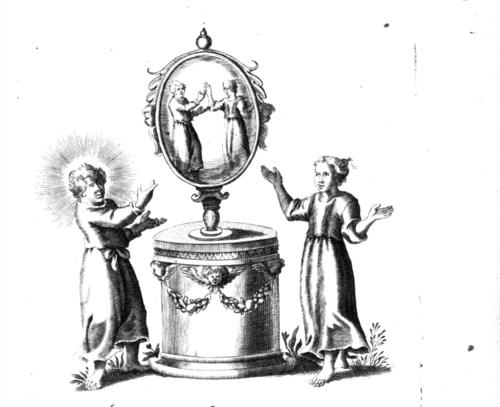
Isaiah 58:1-9 / Matthew 5:43 - 6:4
Loose the bands of wickedness, undo the bundles that oppress, let those that are broken go free, and break asunder every burden.
We might be inclined in light of the words of the Lord through the prophet Isaiah to rethink our classic Lenten fasting. In the scheme of things, is holding back from meat on Fridays really proportionate to crying needs in our world, as pressing today as they were for the prophets of old: Deal your bread to the hungry, and bring the needy and the harborless into your house: when you shall see one naked, cover him and despise not your own flesh. Indeed, God seems decidedly displeased with a weekly observance of fasting, giving preference to the works of justice for the poor. Is this such a fast as I have chosen, he asks, for a man to afflict his soul for a day? Does this mean that the progressive critique is right, and that our weekly Friday abstinence from flesh and fowl might be better replaced with a few hours volunteering at the local soup kitchen?
Perhaps, however, we need to attend a little closer to the labor, often hard, back-breaking labor, which brings food to our table. The relative ease so many of us have in acquiring more than our daily bread may easily blind us to the many people, some willing and happy to serve, others with little else by way of choice, who bring the food to our table. There are the workers at the market, of course, who shelve and sell us the food, the drivers and engineers and even captains who haul the food distances great and small, across land, sea, and sky. Closer to the earth are the farmers, who plan, and toil, and wait, and rise early for a hard day, always dependent on those same forces which elude us as easily as our ancestors of old: the sun, the wind, the rain and snow. All of this labor goes into every bite we take, even if that bite is of an apple or a carrot, a potato or zucchini.
Consider, however, the deeper sacrifice made by our companions on the earth, fellow sharers in the covenant made by God after the Flood, on whom God causes the sun to rise and the rain to fall even as he does for the sons of Adam. I mean, of course, the beasts of the earth. From the dawn of human society, these creatures have labored for our good. They have given their wool and skins for our protection as well as our comfort and yielded their milk for our nourishment. They have placed their greater strength under our yokes to pull the plows that serve ultimately not their needs, but to serve their masters. Finally, for some of them, many of them, and in the present day, far more for every son or daughter of Noah than in any time past, they have spilled their blood and given their flesh for us to eat.
Has God delivered them into our hands? Indeed, he has, from the dawn of time. Has the covenant with Noah not also delivered them to us for food? Indeed it has, even if only because of the waywardness of the human heart and at the cost of seeing in the eyes of the beasts wariness, pain, and fear more than happiness and delight, which if irrational is no less deeply felt. We have it is true been given the beasts both to work to serve our needs, and even their very lives to serve us as we require. This is the end for which they were delivered into our hands, and we ought not to blush in asserting our dominion.
Yet, is not the quality of lordship judged at least as much in how it exercises restraint as in the extent that it makes it rights known? Do we not love a king all the more, admire his power and virtue, when he behaves with clemency than with assertions of privilege? Our tables are set with the sweat of our fellow men and the blood of gentle beasts, and such is the way of the world since the loss of Eden and the cleansing of the Flood. We have, in the passing of years become coarsened to the cries of both. If we would learn to be merciful, truly merciful, with that same bounty as our Father in heaven, who makes His sun to rise on the good and the evil, and sends rain on the just and the unjust, then we must learn through an application of that mercy to those who cannot in any way speak for themselves and who are altogether under our dominion and subject to our power.
If only once every week, can we not afford a clemency for the beasts, our sharers in the covenant, who have labored so much for our good? Can we not, in our fasting, declare a general amnesty for the beasts and birds of our farmlands? Dare we to hope that in drawing back from what we can rightly and without fear of retribution claim as our own, we might grow closer to that love by which God bids us to love even our enemies and those who hate us? Might we not dream that this small act of kindness to the beasts of the earth will be echoed from the vaults of heaven? Then shall you call, and the Lord shall hear; you shall cry, and He shall say: Here I am. For I the Lord your God am merciful.










![[comeandsee.jpg]](https://blogger.googleusercontent.com/img/b/R29vZ2xl/AVvXsEjYanMSZ7FrSASDnPc8-IWxv-dvla9hyphenhyphenlkEVdQduhXfGZTOhgsvfcL0OoxNszRxT1yWSo_ea-gcHxWPwHGAkNL58cInRAZDCHBAFd1iNlToSJSyFz5_1ILj9rOQ38mLMgr8UYE0Ym3sU8jw/s1600/comeandsee.jpg)





